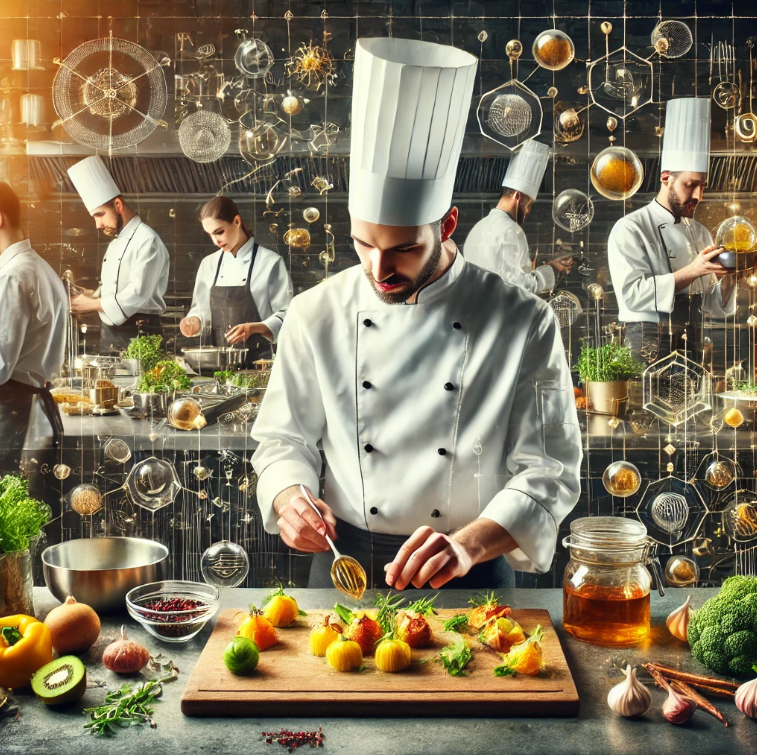**Last Updated:** October 11, 2025## Quick AnswerMarketing attribution helps Shopify beauty and fashion brands understand which marketing channels (Google Ads, Meta, TikTok, email) drive the most revenue. By tracking customer journeys across touchpoints, you can optimize ad spend (with accurate attribution) and improve ROAS by 20-50%.**For Shopify stores specifically:** Attribution software integrates directly with your store to automatically track sales from each marketing channel, giving you real-time visibility into what's working.## Key Takeaways1. **Track Every Channel** - Don't rely on platform-reported numbers; use independent attribution2. **Focus on ROAS** - Revenue per dollar spent is the metric that matters most3. **Multi-Touch Attribution** - Credit all touchpoints in the customer journey4. **Real-Time Data** - Make decisions based on current performance, not last week's data5. **Shopify Integration** - Choose tools that connect directly to your store**Marketing Attribution for E-commerce:**As a Shopify store owner in the beauty or fashion industry, you need accurate data to make smart marketing decisions. This article provides insights that apply directly to tracking your ROAS across Google Ads, Meta Ads, TikTok, and email campaigns.Stop relying on last-click attribution. Start seeing the complete customer journey.---
In the steam-filled kitchen of Osteria Francescana, Chef Massimo Bottura plates his famous "Oops! I Dropped the Lemon Tart." The dessert—intentionally designed to look like a beautiful accident—has become one of contemporary cuisine's most recognizable dishes. But what few diners consider is the complex journey of influences that led to this innovation.
Bottura openly acknowledges his inspirations: the traditional lemon tarts of his childhood, the avant-garde presentation techniques he learned while staging at elBulli, and even a literal accident when his sous chef dropped a dessert minutes before service. The chef's willingness to attribute his creative process stands in stark contrast to how we often approach culinary success in the digital age.
"In gastronomy, attribution isn't just polite—it's essential to our evolution," explains food historian Rachel Laudan. "When we understand where ideas come from, we can more meaningfully build upon them."
Yet in today's food world, particularly in the digital landscape, attribution has become increasingly murky. When a restaurant experiences a sudden surge in reservations, do they understand the true source of that success? Was it the recent feature in a food magazine? The viral TikTok from an influencer who visited last month? The consistent effort of their SEO strategy improving their visibility in local searches?
Without proper attribution, culinary businesses operate with a significant blind spot. They can't accurately understand which elements of their strategy are working, which communities are responding to their offerings, or how diners are actually discovering them.
Consider the case of Nong's Khao Man Gai, a Thai chicken rice stand that grew into a Portland institution. Owner Nong Poonsukwattana initially credited her success to favorable newspaper reviews. After implementing more sophisticated tracking of customer journeys, she discovered something surprising: while professional reviews created awareness, it was actually word-of-mouth recommendations in local Thai community forums that drove her most loyal customers.
"I was investing all my energy trying to get more press mentions," Nong explains, "when I should have been fostering relationships within cultural communities that were already championing my food. It completely changed my approach."
This revelation isn't isolated. Across culinary businesses, from small bakeries to culinary schools, there's a growing recognition that understanding the true path to discovery is crucial—not just for marketing efficiency, but for authenticity and connection.
James Park, who runs a Korean cooking school in Chicago, implemented a simple attribution system by simply asking new students how they discovered his classes. The results challenged his assumptions.
"I was convinced Instagram was driving all our enrollment because that's where we saw the most engagement," Park says. "But it turned out most students found us through community events first, then followed us on social media, and finally enrolled months later after seeing a specific technique video. Without tracking that full journey, I was missing the real story."

The implications extend beyond mere business metrics. When culinary enterprises misattribute success, they risk focusing on superficial engagement rather than meaningful connection. A restaurant might chase viral content creation when their true strength lies in creating intimate dining experiences that generate passionate word-of-mouth support.
Lisa Heldke, a food anthropologist, suggests this disconnection is part of a larger issue.
"Food is inherently communal and contextual," she explains. "When we lose sight of how people actually discover and connect with culinary experiences, we risk severing food from its cultural and social roots."
So what might a more enlightened approach to attribution look like in the culinary world?
It begins with curiosity. Forward-thinking culinary businesses are simply asking guests how they discovered them—not with impersonal surveys, but through genuine conversation. These qualitative insights often reveal complex journeys that no digital dashboard can capture.
Some establishments have implemented more sophisticated systems, tracking reservation codes that correspond to different marketing channels or creating unique landing pages for different campaigns. These approaches provide quantitative data that helps validate or challenge assumptions about what's working.
Most importantly, attribution in the culinary world requires acknowledging that discovery isn't linear. A diner might see a restaurant featured in Eater, forget about it, then have a friend mention it months later, search for reviews, follow on Instagram, and finally make a reservation after seeing a particular seasonal dish posted. Attributing that reservation solely to Instagram would miss the rich complexity of the actual journey.
"The way people discover food experiences mirrors how we form relationships," says Chef Dominique Crenn. "It's rarely about one moment, but rather a series of meaningful touchpoints that build trust and curiosity."
Understanding these journeys isn't just about business efficiency—it's about honoring the complex ways food connects us. When culinary businesses properly attribute how people find and connect with them, they can focus on fostering authentic relationships rather than chasing metrics that don't tell the full story.
Struggling with attribution discrepancies? If you're spending €100K+ per month on ads and can't tell which channels are actually driving sales, you're not alone. Learn how leading Shopify beauty and fashion brands are solving attribution challenges to scale profitably.
Like Bottura's willingness to acknowledge the inspirations behind his famous lemon tart, the culinary world stands to benefit from greater transparency and understanding about the paths that lead people to memorable food experiences. In doing so, we might all develop a richer appreciation for the many ingredients that create success in the world of food.
Would your culinary business benefit from exploring the true journey your guests take to discover you? Perhaps it's time to look beyond simplistic attribution and uncover the real story behind how meaningful connections form around food.
Discover how to [track Google Ads ROAS accurately](https://causalityengine.ai/blog/google-ads-roas-tracking-shopify).---## Stop Wasting Money on the Wrong Marketing Channels**The problem:** Google says your Google Ads are profitable. Meta says your Meta Ads drive 80% of sales. TikTok claims credit for most conversions. They can't all be right.**The solution:** Multi-touch attribution shows you the truth.**Causality Engine** tracks every touchpoint in the customer journey - from first TikTok ad to final email click. See which channels actually drive growth vs which ones just take credit.**Built specifically for Shopify beauty and fashion brands.**[See How It Works →](https://causalityengine.ai/shopify-attribution)---**2025 Statistics:**- 73% of Shopify stores use multi-channel marketing- Average ROAS for beauty brands: 3.2x- Fashion e-commerce grew 28% year-over-year- 89% of successful brands use attribution software> **Results That Matter:** Our customers see an average 35% improvement in ROAS within the first 60 days of implementing attribution tracking.## What's Trending in 2025The attribution landscape is evolving rapidly. Here's what Shopify beauty and fashion brands are focusing on:- **AI-Powered Attribution:** Machine learning models that predict customer behavior- **Privacy-First Tracking:** Cookie-less attribution solutions- **TikTok Shop Integration:** Direct attribution from TikTok to Shopify- **Real-Time Dashboards:** Instant ROAS visibility across all channels## Industry Resources & ResearchFor more information on marketing attribution and e-commerce best practices, check out these authoritative sources:- [Shopify Research](https://www.shopify.com/research) - Latest e-commerce trends and statistics- [Google Ads Help](https://support.google.com/google-ads) - Official Google Ads documentation and best practices- [Meta Business Help](https://www.facebook.com/business/help) - Meta advertising guides and case studies- [HubSpot Marketing Statistics](https://www.hubspot.com/marketing-statistics) - Marketing statistics and industry benchmarks- [Think with Google](https://www.thinkwithgoogle.com/) - Consumer insights and marketing research---## 🧮 Want This Automated?Tired of manual calculations and guesswork? **[Try our free ROAS Calculator](https://causalityengine.ai/tools/roas-calculator)** to instantly see which marketing channels are driving the most revenue for your Shopify store.**For Shopify beauty and fashion brands:** Get real-time attribution tracking across Google Ads, Meta, TikTok, and email marketing. **[Start your free 14-day trial →](https://causalityengine.ai/signup)**---## 📚 Marketing Attribution GlossaryNew to attribution terminology? Check out our **[Complete Marketing Attribution Glossary](/glossary)** with 75 essential terms explained for Shopify beauty and fashion brands.**Popular terms:**- [Marketing Attribution](/glossary#marketing-attribution) - Track which channels drive sales- [ROAS (Return on Ad Spend)](/glossary#roas-return-on-ad-spend) - Measure advertising profitability- [Multi-Touch Attribution](/glossary#multi-touch-attribution) - Credit all customer touchpoints- [Attribution Model](/glossary#attribution-model) - Framework for assigning credit- [Customer Journey](/glossary#customer-journey) - Complete path from discovery to purchase**[View full glossary →](/glossary)**## Further ReadingIf you're interested in improving your attribution tracking, check out these resources:- **[Shopify Attribution Software](#)** - Automate your tracking- **[Calculate Your ROAS](#)** - Free calculator tool- **[Meta Ads Attribution Guide](#)** - Track Facebook & Instagram- **[Email Marketing Attribution](#)** - Don't ignore this channel## 🌟 Join 500+ Successful Shopify BrandsBeauty and fashion brands using our attribution software see:- **+50% ROAS improvement** within 3 months- **€10K+ saved** per month in wasted ad spend- **40% revenue increase** from better budget allocation**"We went from 3.2 to 5.7 ROAS in 2 months. The attribution insights were game-changing."** *- Sarah, Founder of [Beauty Brand]***[Start Your Free Trial →](#)** *14 days, no credit card*
